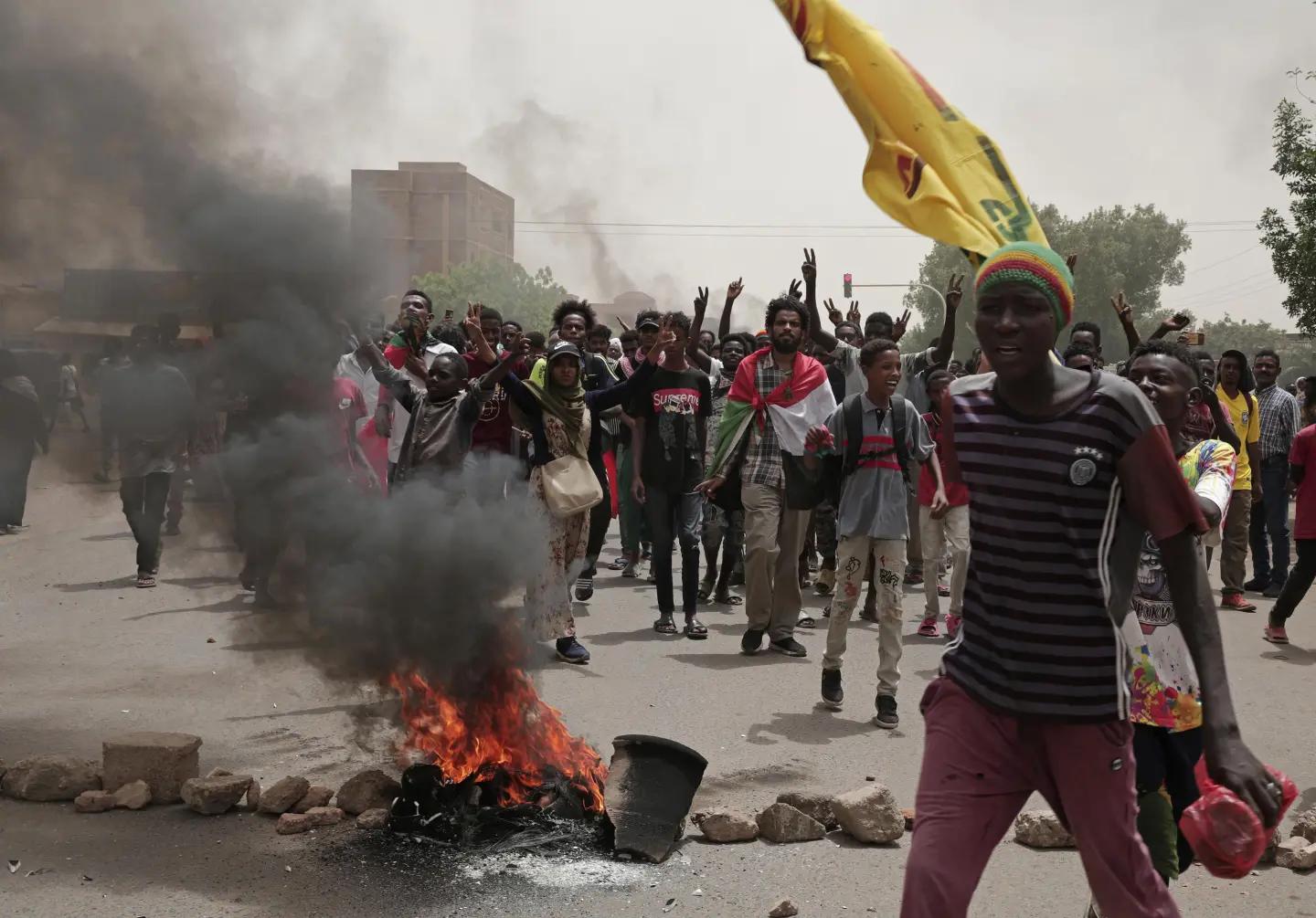YAOUNDÈ, Cameroon – As a deadly conflict continues to rage in Sudan, Catholic bishops both inside the country and in neighboring South Sudan have used their Christmas message this year to praise the clergy and men and women religious for continuing to serve despite the risks.
“To you, our dear clergy and religious men and women, we would like to extend our sincere gratitude for your courage and resilience,” they said.
“When the war broke out, you and your bishops got scattered all over the country and even across the border. It deprived you of the use of churches and centers of worship… [and] made you lose essential properties and commodities for sustenance,” the bishops of the two countries said in a collective statement issued Dec. 26.
“Despite all these challenges you continued to serve the people of God,” they said. “We will seek ways to improve the conditions of lives of the priests and religious who were forced to abandon their areas of evangelization.”
Fighting erupted in Sudan in mid-April, when former allies couldn’t agree on a power-sharing agreement. The Sudanese armed forces, broadly loyal to General Abdel Fattah al-Burhan, went into conflict with the Rapid Support Forces (RSF), a collection of militia loyal to former warlord General Mohamed Hamdan Dagalo, known as “Hemedti.”
In 2019, the two men headed an uprising that led to the ouster of former leader Omar El Bashir. But attempts to transition to democratic rule failed, and the two men ended up as rivals for power.
The fighting is now entering its ninth month and has killed more than 12,000 people, with over 7.2 million others forced to flee from their homes, according to the United Nations Office for the Coordination of Humanitarian Affairs (OCHA.)
The UN body says Sudan is now the country with the largest number of displaced people and the largest child displacement crisis in the world.
According to the bishops, the destruction of lives, property and livelihoods has been overpowering, noting that many people “never expected such an unfortunate situation to unfold in Sudan.” They said villages in regions such as Darfur and Kordofan have been burned to the ground, leaving citizens with no shelter or accommodation.
In an earlier statement in June, the bishops stated that the people of Sudan, through non-violent protests, had made their preference for democratic rule known.
“They want a democratic civilian government, and they want the two separate military forces to be merged and to come under civilian control. We call upon the warring parties to respect the will of the Sudanese people.”
Catholic bishops in both countries now believe that the fighting is meant to divide the people.
“We have a strong feeling that the chain of events in Sudan is an attempt to block your aspiration for a society where people live as brothers and sisters,” the bishops said.
With global attention laser-focused on the wars in Ukraine and Gaza, the bishops also charged that Sudan has been abandoned.
“We would like to appeal to the international community, the troika, and the UN not to sit back, but to continue its responsibility of working towards addressing the crisis and providing the necessary support to alleviate the humanitarian crisis in the Sudan,” the bishops said.
In the context of Sudan, the “troika” refers to joint efforts among the U.S. the U.K. and Norway to broker a peaceful solution to the conflict.
“Indeed, the best gift the people in Sudan need now is an immediate ceasefire and an end to the conflict,” the bishops said in their Christmas Day statement.
The Church leaders also sought to give the people of Sudan a sense of hope amid the turmoil. Noting that prayer still has the power to change the narrative, the bishops promised to continue engaging the warring parties in view of finding a solution.
“As bishops, we believe that our strength comes from the power of prayers, an act which raises our hope for a better tomorrow. Using different platforms, we will continue to engage the leaders of the various parties in Sudan to put the interest of the people first, in their struggle for political power,” they stated.
The clerics expressed regret that humanitarian organizations, including Catholic organizations, are not being given access to deliver essential services.
Alain Ouattera, the deputy head of the United Nations Office for the Coordination of Humanitarian Affairs in Sudan, recently told Al-Jazeera that the army impedes aid shipments to RSF-controlled areas.
“For us to get aid to [civilians in Gezira], we have to cross all these regions under [the Sudanese army’s control]. But to get the travel permit required to take aid from one state to the other takes ages,” he said.
“It’s not only risky to get supplies [to civilians], but it’s also so challenging because of all the impediments.”
The bishops also warned that the conflict could grow into a regional conflict in a region already beset by several crises.













